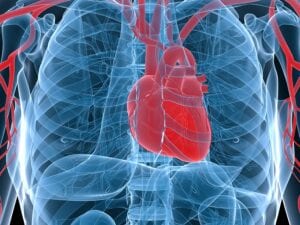Differences in Heart Attack Symptoms Between Men and Women
Did you know that it’s not uncommon for women to ignore or misidentify the symptoms of a heart attack in themselves? One of the reasons for this is that they tend to experience different symptoms than men do—ones that don’t match the ones typically shown on television. Knowing the symptoms that signal a heart attack can help your older family member to receive the immediate care they need to reduce damage and even save their lives.
Heart Attack Symptoms in Men

Elder Care Thomasville, NC: Heart Attack Symptoms
Men have heart attacks more often than women do. They also tend to have them earlier in life. Men who have a family history of heart attacks, who smoke, have high blood pressure, have high cholesterol, or are obese have a greater chance of having a heart attack than those without these risk factors.
Symptoms that men typically experience when having a heart attack include:
- Chest pain or pressure that is often described as feeling like an elephant is sitting on their chest. They may also have intermittent squeezing pain or squeezing pain that is constant and severe.
- Pain or discomfort in the upper body, such as in the arms, jaw, back, left shoulder, or stomach.
- Heartbeat that is irregular or rapid.
- A feeling of indigestion.
- Being short of breath even when resting.
- Dizziness.
- Cold sweat.
Heart Attack Symptoms in Women
Recently, doctors have begun to realize that women tend to have different symptoms of heart attack than men do. In one study, published in the journal Circulation, researchers found that the most commonly reported symptoms of heart attack in women did not include chest pain. In addition, some women had symptoms for up to a month before actually having a heart attack.
Symptoms that women may experience are:
- Fatigue that lasts over a period of days or sudden fatigue that is severe.
- Difficulty sleeping.
- Anxiety.
- Feeling lightheaded.
- Being short of breath.
- Indigestion or gas-like pain.
- Pain that spreads upward into the jaw.
Because the symptoms of heart attack can be misleading in women, it’s important to report any unusual symptoms to the doctor. If you suspect your aging relative is having a heart attack, call 911 immediately.
If you are concerned about your older family member’s heart health, elder care can help to monitor them for symptoms of a heart attack and call 911 in an emergency. In addition, elder care can assist with steps for improving heart health. For example, an elder care provider can prepare heart healthy meals and encourage the older adult to be more physically active.
If you or an aging loved one are considering elder care in Thomasville, NC, contact the caring professionals at TenderHearted Home Care today. Call us at (704) 612-4132.
Sources
https://www.heart.org/en/news/2019/04/04/proactive-steps-can-reduce-chances-of-second-heart-attack
https://www.healthline.com/health/heart-disease/heart-attack-symptoms#symptoms-inmen
https://www.webmd.com/heart-disease/features/womens-heart-attacks-how-they-differ
- Six Areas Your Loved One May Need Help With During the Early Stages of Alzheimer’s Disease - May 8, 2025
- What Harms Senior Mental Health? - April 23, 2025
- How 24-Hour Home Care Can Protect Your Senior Parent - April 4, 2025

